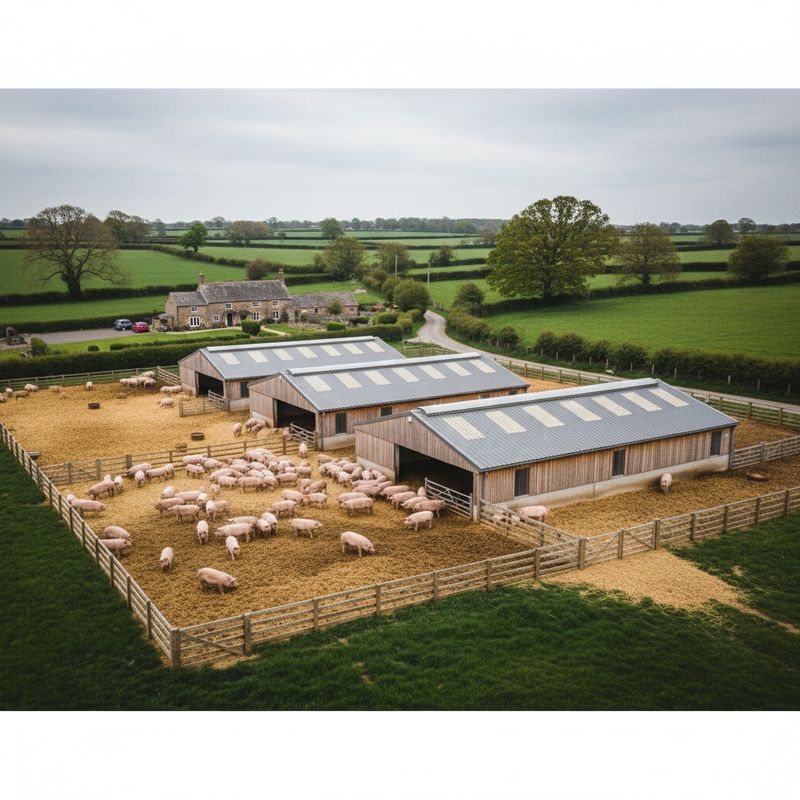
Market Pulse: Avian Flu Hits Poland & Bulgaria, UK Stunning Debate, Alt-Protein Targets Germany
Avian Flu returns to Eastern Europe, UK industry defends pig stunning methods, and alt-protein secures €40M for German push.
Animal Health: Avian Flu Resurges in Poland and Bulgaria
What happened: Highly pathogenic avian influenza (HPAI) has returned to Europe with multiple new outbreaks confirmed since the beginning of October. According to a report from WATTPoultry.com, new cases in commercial poultry have been officially registered in 10 countries over the last few weeks. The new wave of infections includes five new outbreaks in Poland and at least one in Bulgaria, alongside new cases in Germany, Spain, and Northern Ireland.
Why it matters: The re-emergence of HPAI as the weather cools is a critical threat to the European poultry sector. For major exporters like Poland, these outbreaks trigger immediate trade restrictions, threatening lucrative export markets. The confirmation of a case in Bulgaria puts the entire Balkan region on high alert for further spread, necessitating costly biosecurity measures and potentially disruptive culling operations.
Implications & suggested actions:
Producers (Eastern Europe): Immediately enforce and enhance all biosecurity protocols. Monitor flocks for any signs of the disease and restrict all non-essential traffic to and from farms.
Traders (EU): Be prepared for immediate regionalisation measures to be imposed. This will disrupt the supply of poultry meat from affected zones in Poland and Bulgaria, requiring a rapid shift in sourcing to unaffected regions or countries.
Vets & Authorities: Increase surveillance and testing, especially in high-risk areas. Swift detection and reporting are critical to containing the spread and minimising the economic damage.
UK Market: Meat Industry Rejects Call to Ban CO2 Stunning for Pigs
What happened: UK meat industry bodies have strongly rejected recommendations from the government's animal welfare advisory body to phase out the use of high-concentration CO2 stunning for pigs in abattoirs. In a statement on October 20, the Association of Independent Meat Suppliers (AIMS) and the British Meat Processors Association (BMPA) warned that the move to unproven alternative methods would be a "disaster" that could reverse welfare progress and render the industry uncompetitive.
Why it matters: This is a major conflict between animal welfare campaigners and the operational realities of the processing industry. Industry leaders argue that CO2, while imperfect, remains the most humane and efficient method available at scale. They warn that forcing a switch to alternatives would increase animal stress during pre-slaughter handling and be operationally unfeasible, especially as 50% of UK pigmeat is imported from countries that would still use CO2.
Implications & suggested actions:
UK Processors: The industry must actively lobby to defend its position, focusing on the scientific evidence for welfare outcomes and the massive economic impact of a forced transition. Investment in refining and improving existing CO2 systems should be highlighted.
Retailers: Retailers will face significant public and NGO pressure to move away from CO2 stunning. They must decide whether to back their current suppliers or begin the difficult search for supply chains using alternative, and likely more expensive, methods.
EU Exporters (to UK): This debate is currently internal to the UK, but any resulting regulation could eventually impact import standards. Exporters to the UK should monitor the policy's direction closely.
EU Market: Alt-Protein Firm MATR Foods Secures €40M to Target German Market
What happened: The Danish alternative-protein company, MATR Foods, has announced it has secured €40 million ($47 million) in total funding to scale up its production. The company, which uses solid-state fermentation to create "next generation" meat alternatives from vegetable ingredients, has named Germany as a primary target market for its expansion, alongside Switzerland and its native Denmark.
Why it matters: This is a significant investment in the European alt-protein sector, which has faced headwinds recently (as seen in the struggles of Beyond Meat, reported on October 7). Unlike companies trying to perfectly mimic meat, MATR is focused on "clean-label" and less-processed alternatives. The specific targeting of Germany confirms the country's status as the largest and most valuable market for plant-based foods in Europe.
Implications & suggested actions:
Traditional Meat Processors (Germany): The high-end, clean-label alt-protein sector is preparing for a new push. This will increase competition in the "flexitarian" space, not just from burgers and sausages, but from whole-food alternatives.
Foodservice & Retail (EU): Buyers should anticipate a new wave of premium, clean-label plant-based products entering the market. This creates an opportunity to expand offerings for consumers who are wary of the "ultra-processed" nature of some meat mimics.
Investors: This funding round shows that while some parts of the alt-protein market are struggling, investor appetite remains strong for innovative companies with a clear, differentiated product and a focus on core European markets.
Sources
Avian flu returns to Europe with a vengeance (20 October 2025). WATTPoultry.com. https://www.wattagnet.com/poultry-meat/diseases-health/avian-influenza/news/15769735/avian-flu-returns-to-europe-with-a-vengeance
Meat industry rejects calls to ban CO2 in abattoirs (20 October 2025). Pig World. https://www.pig-world.co.uk/news/meat-industry-rejects-calls-to-ban-co2-in-abattoirs.html
Armed with $47m, MATR Foods to scale next generation of alt meat via solid-state fermentation (21 October 2025). AgFunderNews. https://agfundernews.com/armed-with-47m-matr-foods-to-scale-next-generation-of-alt-meat-via-solid-state-fermentation
